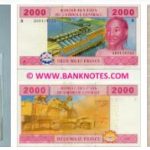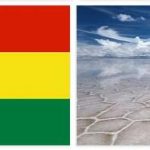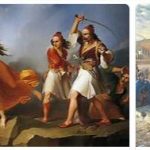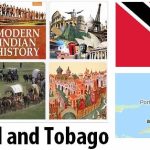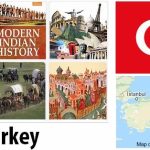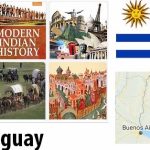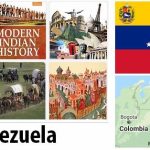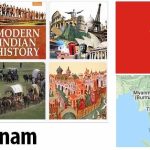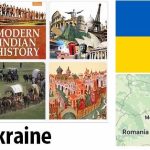Gabon is a country located in Central Africa. With the capital city of Libreville, Gabon has a population of 2,225,745 based on a recent census from COUNTRYAAH. Most of the time since independence in 1960, Gabon has been dominated by the Bongo family and its party PDG: first President Omar Bongo from 1967 and after his death in 2009 his son Ali Ben Bongo.
At independence in 1960, the political situation in Gabon was calm and was characterized by cooperation between the two political parties in the country, President Léon M’Bas Democratic Gabonese bloc (BDG) and Gabonese Democratic and Social Union (UDSG), under Foreign Minister Jéan-Hilaire Aubame.
- ABBREVIATIONFINDER: List of most commonly used acronyms containing Gabon. Also includes historical, economical and political aspects of the country.
At the beginning of 1963, the contradictions between the parties intensified. BDG demanded that the smaller UDSG join forces with BDG or resign from the government. Elections were announced until February 1964 and when it became clear that the UDSG would not compile a list of approved candidates for the election, the military intervened. M’Ba was deposed in a bloodless coup but was reinstated the following day with the help of French forces. After the failed coup, President M’Ba gradually transformed the country into a one-party state. Check best-medical-schools for more information about Gabon.
M’Ba, around whom a cult of personality had already emerged prior to independence, died in 1967 and succeeded by Vice President Albert-Bernard Bongo. He decided in 1968 to also formally introduce one-party systems. The newly formed Gabonese Democratic Party (PDG), became the only allowed party.
Fast growth
During the 1970s, Gabon experienced rapid economic growth thanks to rising oil revenues and liberal foreign investment rules. Bongo was re-elected in 1973 with over 99 percent of the vote. In 1975 he converted to Islam and changed his first name to Omar.
At the end of the 1970s, falling oil prices on the world market slowed growth in the Gabonese economy, with social problems and rising population dissatisfaction as a result.
In 1981, a moderate opposition group was formed, the Movement for the Nation’s Restoration (Morena). The group accused Bongo of corruption and economic mismanagement and demanded multi-party democracy. Many Morena supporters were arrested, sentenced to harsh prison sentences for state security violations, or fled abroad.
When Bongo was re-elected as president in 1986, all Morena members had been released from prison after international pressure. In 1989, Morena’s leader Paul Mba Abessole returned to Gabon after twelve years in exile. When he declared support for Bongo’s regime, he was excluded from Morena and instead formed a party that came to be known as the National Forest Collection (RNB).
Multi-party systems are introduced
In the early 1990s, strikes and demonstrations broke out in which participants demanded democratization. A national conference was convened which voted for an immediate transition to multi-party systems. President Bongo accepted the proposal for multi-party systems and already in the autumn, a choice was held in which several parties participated. The election had to be held in rounds since the opposition had accused the government side of electoral fraud. Although the result was delayed, PDG formed government in November along with some opposition parties. Only in March 1991 could the final election result be presented: Bongo’s party, PDG, received just over half of the mandate.
The strikes and unrest continued. In the 1993 presidential election, Bongo won by more than half the votes. International election overseers said they had not seen any direct irregularities, but as soon as the election results had been announced, protests and unrest erupted by security forces broke out.
In the fall of 1994, the African Unity Organization (OAU) (predecessor to the African Union, AU) managed to get the opposition and the government to meet in Paris. It included an agreement to change the electoral law, set up an independent electoral commission and announce a new parliamentary election within 18 months. In a 1995 referendum, the agreed constitutional amendments were approved, which meant, among other things, that Parliament would be expanded by a Senate whose members would be appointed by the country’s regional and local assemblies.
Continued PDG dominance
Bongo and his party continued to dominate. Bongo, which has amassed a huge fortune, won followers and disarmed oppositionists with generous gifts. He placed family members and friends on leading positions.
PDG won a major election in both the National Assembly and the newly formed Senate in 1996, and Bongo took home the 1998 presidential election with 67 percent of the vote.
The following parliamentary elections were delayed due to accusations of cheating and boycott calls. Only after six months, in the summer of 2002, was there a result and it was clear that PDG had consolidated its dominance. Meanwhile, Bongo had invited the opposition to join a unity government. Among four opposition politicians who accepted a ministerial post were Paul Mba Abessoles, whose party RNB changed its name to Collection for Gabon (RPG). Both the RPG and the Social Democratic Party (PSD) eventually formally joined the presidential camp.
Bongo’s position was further strengthened when Parliament voted in the summer of 2003 to remove the presidential reelection bar.
As oil revenues fell during the first years of the 21st century and the economy deteriorated, an increased dissatisfaction with the regime was felt. To divert criticism, Omar Bongo used hostile attitudes towards immigrants and conducted several mass expulsions. The president also used the security service and the presidential guard to harass political opponents, and critical mass media was silenced.
New big win for Bongo
Prior to the presidential election in the autumn of 2005, four candidates were approved, besides Omar Bongo himself. Among them were former Minister Zacharie Myboto, who resigned from the 2004 ruling party and joined the opposition through his newly formed party, the Gabonese Union for Democracy and Development (UGDD), and Pierre Mamboundou of the Gabonese People’s Union (UPG), who had also served in presidential election in 1998. Before the election, the authorities announced that no new passports would be issued for opposition leaders. Opposition politicians who tried to leave the country would have their travel documents withdrawn. Ten opposition parties refused to join the Election Commission in protest at how the election had been prepared. To attract voters, Omar Bongo introduced free schooling for everyone, distributed cash and promised free electricity and water for a month to tens of thousands of households.
In the 2006 parliamentary elections, PDG and support parties won, as usual, by far.
UPG leader Pierre Mamboundou, who had long been seen as the regime’s leading opponent, in 2006 stopped publicly criticizing the president. Mamboundou made no secret that he promised to give him over $ 20 million “to develop his constituency.”
In June 2007, French police opened an investigation into whether President Bongo and his colleagues from Congo-Brazzaville and Equatorial Guinea had seized public funds and used them to buy luxury properties in France. In a previous investigation, Omar Bongo and his father-in-law Denis Sassou-Nguesso, president of Congo-Brazzaville, had been accused of receiving hundreds of millions of dollars in bribes from the French oil company Elf. In 2008, a manifesto spread on the internet in which opposition attacked not only President Bongo but also two of his children, the daughter and former Foreign Minister Pascaline Bongo Ondimba as well as the son and defense minister Ali Ben Bongo Ondimba. The latter two were accused of treating Gabon as their private property and were also alleged to be involved in a power struggle over who would succeed the father.
In the first half of 2009, protracted strikes occurred in Gabon’s school and medical services, in protest of poor wages and working conditions.
Omar Bongo dies
In May of that year, President Bongo “temporarily” relinquished power to his vice president. It soon became clear that he was in a hospital in Barcelona where he was being treated for cancer. On June 8, 2009, an official Gabonese affirmation came about the death of President Omar Bongo. Thirty days of country grief was announced.
After Omar Bongo’s death, the ruling party appointed Ali Ben Bongo as its candidate in the August presidential election. Four ministers, including two PDG veterans who opposed Ali Ben Bongo’s candidacy, were fired or possibly resigned voluntarily to, like Prime Minister Ndong, be able to stand as independent candidates.
UPG and four other opposition parties jointly nominated Pierre Mamboundou as its presidential candidate. Other opposition representatives joined former Interior Minister André Mba Obame.
Ali Ben Bongo takes over
Even before the votes began to count, both Bongo and Mba Obame and Mamboundou had declared themselves victors. When the election results were delayed, the military gathered in the capital Libreville. On September 3, Ali Ben Bongo was declared the winner. The announcement of the election results triggered unrest, especially in the city of Port-Gentil in the southwest, the base of the people group to which Mamboundou belonged. Following rumors that Ali Ben Bongo won with French help, crowds set fire to the city’s French consulate and also attacked other French-affiliated buildings.
The Constitutional Court granted requests from opposition politicians that the votes be checked. On October 12, the Constitutional Court confirmed that Ali Ben Bongo had won the election. After the recalculation, his share of the votes had been adjusted slightly; Bongo won with 42 percent of the vote against just over 25 percent each for Mamboundou and Mba Obame.
In early 2011, Mba Obame tried to carry out a coup and proclaimed himself the rightful president of Gabon, but he failed to win any major support for his campaign within the country and no other country recognized him as president. Mba gave up after a month and went into exile in France.
2003
July
President can sit “for life”
Parliament adopts a constitutional change which means that the president can be elected on any number of occasions.

